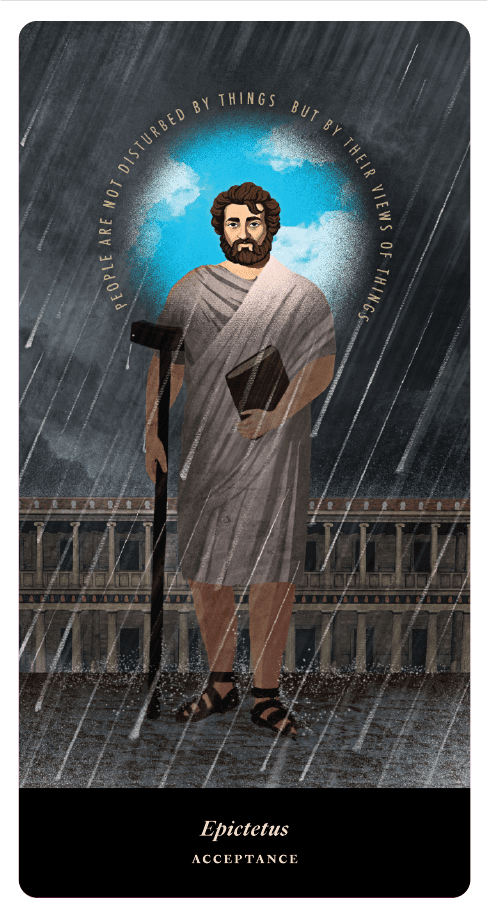Epictetus | People Are Disturbed Not by Things, but by Their Views of Things 50 CE TURKEY 135 CE GREECE
Epictetus is a philosopher of acceptance. He is a key thinker in the school of thought called Stoicism. Epictetus takes Socrates’ lesson that a virtuous life is a good and happy life and turns it into a strict discipline backed by a deterministic model of the universe. Whereas Socrates defines himself as a midwife, helping others to give birth to wisdom he claims not to possess himself, Epictetus is more akin to a physician. He heals mental disturbances that sicken the soul by teaching us how to live in harmony with the universe. Everything happens for a reason, and if we understood the nature of the universe correctly we would wish for nothing to be different. For Epictetus, the universe is fated and good and can be in no other way. That is why we must be thankful for everything that happens. We cannot change events in the past through our regret, or influence the future through our worry: the past and the future are out of our control. Epictetus asks us to stay focused only on what is within our control. Our thoughts, desires, emotions, and wills are in our control, while our bodies, property, reputations, and the opinions of others are out of our control. Through mental discipline and the wisdom to know and act only on what is within our control, we may overcome all hindrances.

